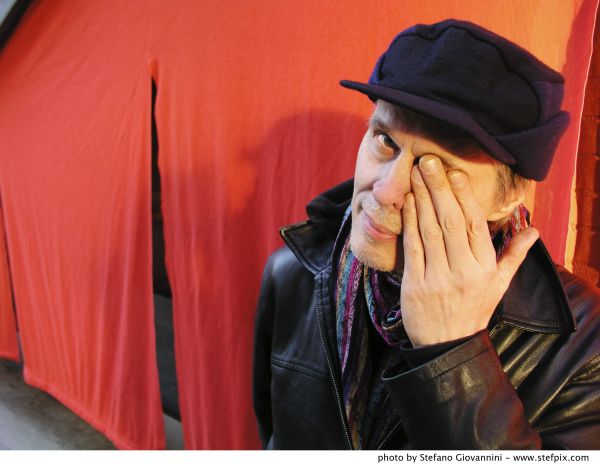He Was Tom Verlaine

Patti Smith remembers her friend, who possessed the child’s gift of transforming a drop of water into a poem that somehow begat music.
By Patti Smith
January 30, 2023
He awoke to the sound of water dripping into a rusted sink. The streets below were bathed in medieval moonlight, reverberating silence. He lay there grappling with the terror of beauty, as the night unfolded like a Chinese screen. He lay shuddering, riveted by flickering movements of aliens and angels as the words and melodies of “Marquee Moon” were formed, drop by drop, note by note, from a state of calm yet sinister excitement. He was Tom Verlaine, and that was his process: exquisite torment.
Born Thomas Joseph Miller, raised in Wilmington, Delaware, he left his parental home and shed his name, a discarded skin curled in the corner of a modest garage among stacks of used air-conditioners that required his father’s constant professional attention. There were hockey sticks and a bicycle and piles of Tom’s old newspapers strewn in the back, covered with ghostly outlines of distorted objects; he would run over tin cans until they were flattened, barely recognizable, and then spray them with gold, his two-dimensional sculptures, each representing a rapturous musical phrase. In high school, he played the saxophone, embracing John Coltrane and Albert Ayler. He played hockey, too, and when a flying puck knocked out his front teeth he was obliged to put away his saxophone and dedicate himself to the electric guitar.
He lived twenty-eight minutes from where I was raised. We could easily have sauntered into the same Wawa on the Wilmington-South Jersey border in search of Yoo-hoo or Tastykakes. We might have met, two black sheep, on some rural stretch, each carrying books of the poetry of French Symbolists—but we didn’t. Not until 1973, on East Tenth Street, across from St. Mark’s Church, where he stopped me and said, “You’re Smith.” He had long hair, and we clocked each other, both echoing the future, both wearing clothes they didn’t wear anymore. I noticed the way his long arms hung, and his equally long and beautiful hands, and then we went our separate ways. That was, until Easter night, April 14, 1974. Lenny Kaye and I took a rare taxi ride from the Ziegfeld Theatre after seeing the première of “Ladies and Gentlemen: The Rolling Stones,” straight down to the Bowery to see a new band called Television.
The club was CBGB. There were only a handful of people present, but Lenny and I were immediately taken with it, with its pool table and narrow bar and low stage. What we saw that night was kin, our future, a perfect merging of poetry and rock and roll. As I watched Tom play, I thought, Had I been a boy, I would’ve been him.